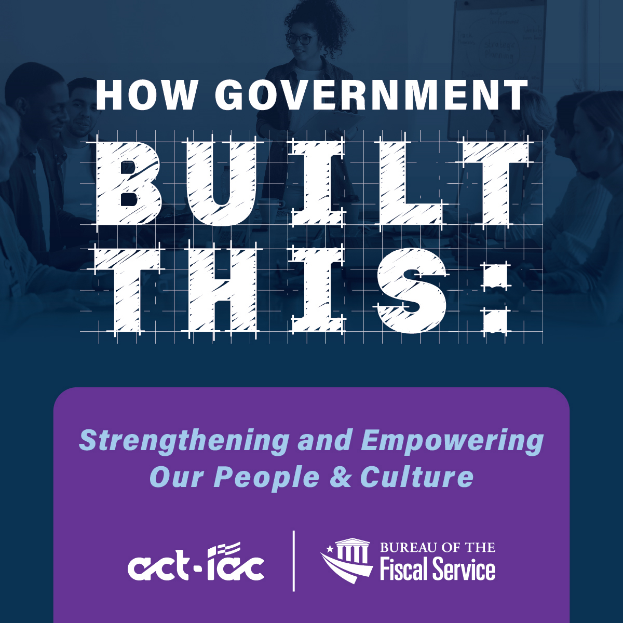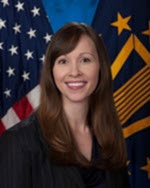

How Government Built this: Upskilling for Success and Satisfaction


Melanie Krause, IRS Chief Data and Analytics Officer and Responsible AI Official Director of Research, Applied Analytics & Statistics, Internal Revenue Service
Melanie joined IRS in October 2021 as the Chief Data & Analytics Officer. In this role, Melanie works across the enterprise to coordinate research designed to advance areas of strategic importance to the Service. This includes:
-
- using AI and other advanced analytics to support new or expanded customer service and enforcement initiatives,
- developing strategies for addressing emerging issues, and
- better measuring the full impact of IRS budget and actions on compliance.
She also served as Acting Deputy Commissioner for Services and Enforcement from November 2022 to March 2023.
Before joining the IRS, Melanie served as the Assistant Inspector General for Management and Administration with the Department of Veterans Affairs Office of Inspector General (VA OIG). Melanie has over 8 years of experience conducting and leading oversight of Federal programs with the Government Accountability Office. Also, she was detailed to the Senate Committee on Veterans Affairs and served in several roles with the VA OIG before being appointed as Assistant Inspector General.
Melanie maintains an active license as a registered nurse and holds bachelor, master, and doctoral degrees from the University of Wisconsin-Madison.
In her spare time, Melanie enjoys spending time with family and friends, and has taken up a few new outdoor hobbies during the pandemic, including skiing, kayaking, and camping.
 Justin Marsico, Chief Data Officer, Bureau of the Fiscal Service
Justin Marsico, Chief Data Officer, Bureau of the Fiscal Service
Justin Marsico is the Chief Data Officer for the Fiscal Service, where he is working to modernize the bureau’s management of data, including data governance and analytics.
Justin also oversees the Fiscal Service’s delivery of data to the public, which includes USAspending.gov and fiscaldata.treasury.gov. In a previous role at Fiscal Service, Justin created the federal spending website called the Data Lab, and a new team dedicated to conducting enterprise-wide analytics.
Before Justin joined the Fiscal Service, he served as a senior advisor in the Inspector General's office at the Department of Commerce, where he investigated ethics matters and employee misconduct.
Justin also worked as an analyst at the Consumer Financial Protection Bureau and previously at Treasury as an international economist. Justin holds master’s degrees from the University of Michigan in applied economics and public policy. He now lives in Arlington, VA.
What is upskilling, and why is it important for the future of the Government?
According to Melanie, upskilling is part of IRS’ strategic plan. Upskilling at IRS occurs when employees are provided focus and opportunity to develop the skills needed to succeed in their careers. Upskilling is important because IRS wants its workforce to provide consistent service to taxpayers and to be responsive to changing needs.
Justin referenced the Global Digital Skills Index (a recent survey), which reported that (1) many workers felt that they don’t possess the skills needed by businesses and (2) 70% of employees who do have digital skills training report that they are more engaged at work.
To Justin, this shows that management and workers should be aligned to provide upskilling opportunities for employees. This emphasis on alignment shaped the launch of Fiscal Service’s Data University, a year-long training program that will help Fiscal Service participants learn data analytics and data literacy.
What do you suggest employees could do today to empower themselves to try to acquire those skills and to apply to everyday work they are doing?
Melanie said that at IRS they are working to identify skills to upskill. IRS has created focus groups to identify specific skills which would be most beneficial to daily work, including specific data and analysis skills. Also, IRS has consulted with private industry to identify needed skills.
Justin believes that the future of work is about employees becoming lifelong learners, especially as technology continues to develop.
Can you discuss the importance of acquiring both technical and soft skills and how they complement each other in the workplace?
Justin believes there is a need to bring together diverse skills on teams. Justin stressed everyone on the team having soft skills because everyone on the team needs to be able to communicate with each other.
Melanie acknowledged the need for soft skills as well and added that the tone should be set from “the top,” stressing empathy and understanding.
What are some of the emerging trends in upskilling and professional development, and how can individuals stay ahead of the curve?
One trend Justin noticed is that both management and the workforce are embracing upskilling and investing in our workforce. Justin also acknowledges that “we can’t hire our way out of this” because of constraints on resources. Justin believes the way our organizations can get the needed skills is by training our current workforce. Justin also acknowledged that, after training, it is important that management provide opportunities for employees to use their newly acquired skills to maintain them.
How can upskilling contribute to creating a more diverse and inclusive workforce, and what steps can be taken to ensure equitable access to upskilling opportunities?
Melanie said that at IRS they use available training technology (for example, Integrated Talent Management and LinkedIn Learning, and the like) and they seek to be thoughtful about training. Also, at IRS Melanie acknowledges the priority of making available broad opportunities for self-directed training. Melanie discussed IRS’ focus on ensuring that employees have access to quality training and establishing a culture of training.
For new organization looking to build data community in the workforce, is there one thing that someone can take away?
Justin said that, in designing capstone training projects, organizations should consider having trainees do “real work” – something that their home office may need. Also, Justin reiterated making sure employees have opportunities to apply their newly acquired skills to real work.
Melanie stressed “meeting employees where they are.” She explained the importance of customizing training for employees rather than a one-size-fits-all curriculum. Melanie stressed being able to adopt different learning methods.
